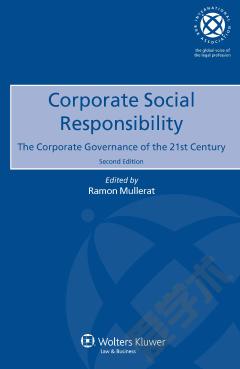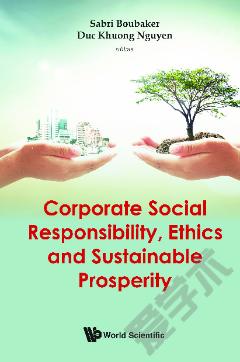Corporate Social Responsibility Sustainable Business —— Environmental, Social and Governance Frameworks for the 21st Century
----- 企业社会责任可持续经营
In a dramatic departure from its voluntary origins, corporate social responsibility (CSR) is rapidly shifting to hold multinational companies accountable for more than traditional shareholder performance. This CSR movement is embracing new environmental, social and governance (ESG) frameworks that both promote global sustainability goals and enhance accountability for negative impacts businesses can have on ‘planet and people’. This collection of essays by leading businesspeople, international civil servants, legal practitioners, academics, and other experts offers a forward-looking and pragmatic perspective that illuminates the major themes in this movement towards increasingly sustainable, transparent and accountable business practices. The collection shows how CSR has evolved to account for societal pressures, environmental, climate change and human rights impacts, international policy imperatives and the practical challenges of regulating commercial activity that transcends borders. The chapters offer an in-depth examination of current issues including: international frameworks and multistakeholder initiatives catalysing foundational change; the shifting emphasis on corporate imperatives to avoid harm to third parties; trends in CSR, focused on assuring the planet's future sustainability and social stability; regulatory initiatives around the globe, including Europe, North America, Asia and Africa; and extended accountability for activities of corporate group members and supply chains. The pressure and business case for companies to incorporate CSR into corporate governance is intensifying with each quarter, shareholder meeting, and regulatory agenda. The integration of CSR and new ESG frameworks into multinational corporate strategy and operations is key to sustainable business models that can generate long-term value for the organization and all stakeholders. Their acceptance as cornerstones of 21st century business practice appears inevitable. Taking full account of the imperative for companies and their lawyers to grapple with the practical and legal challenges in this area, this volume is an invaluable and pragmatic addition to the practitioners’ toolbox at this important juncture in an ever-more dynamic field.
{{comment.content}}








 京公网安备 11010802027623号
京公网安备 11010802027623号